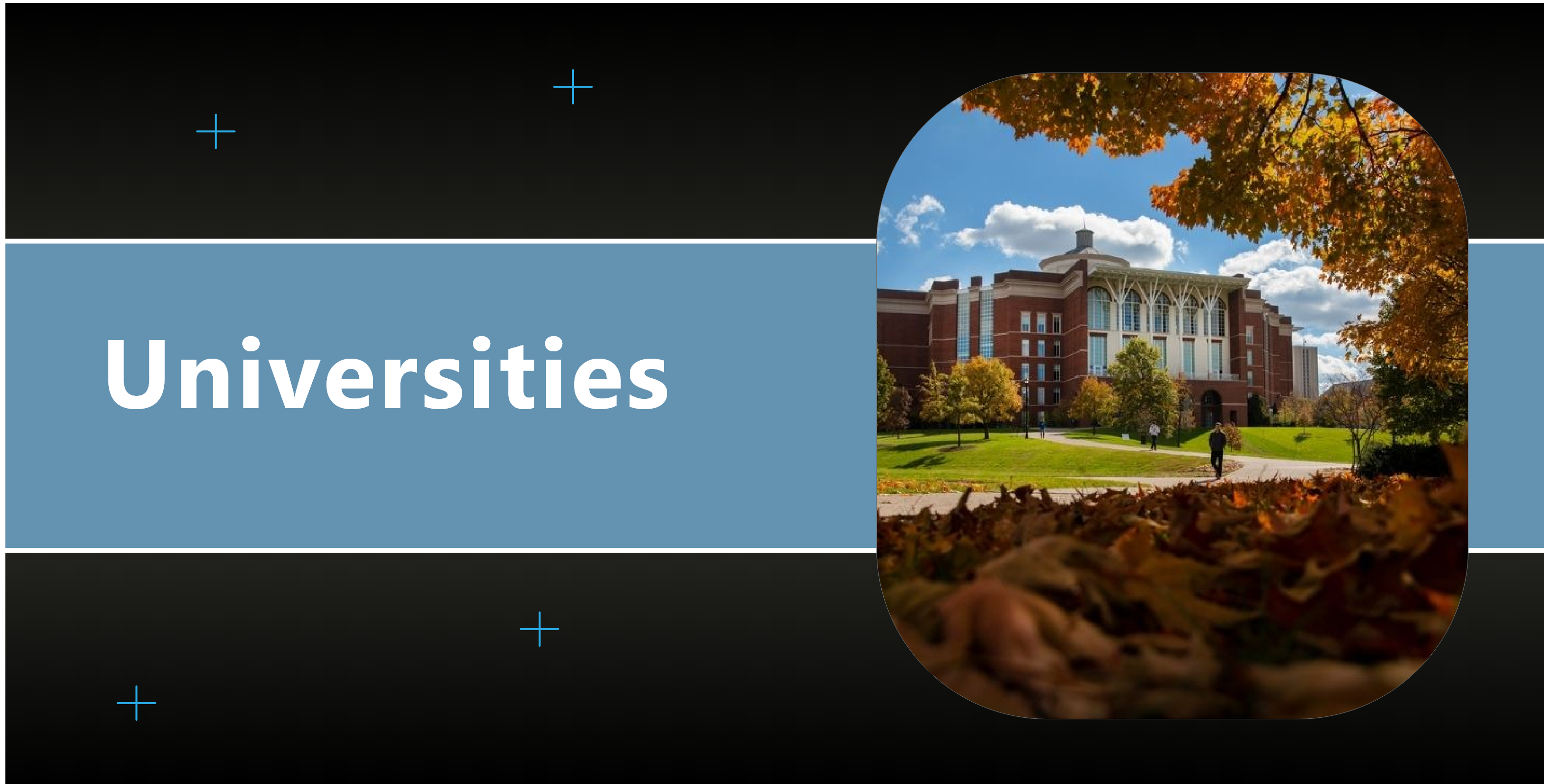Top 10 Law Schools in the USA for 2024: A Comprehensive Guide to Your Legal Education
Outline
- Top US Law Schools
- Important Details Regarding Top US Law Schools
- US Law Schools That Rank at the Top
- Understanding Rankings
- Admission Strategies for Top US Law Schools
The pursuit of legal education in the United States is often characterized by the aspiration to gain admission into one of the nation’s top law schools. These prestigious institutions are renowned for their rigorous academic programs, distinguished faculty, and significant impact on the legal landscape nationally and globally. The top 10 law schools in the U.S. not only offer unparalleled educational opportunities but also serve as gateways to influential careers in law, shaping the minds and skills of future legal professionals. This blog delves into the defining characteristics, strengths, and specialties of these esteemed law schools, providing insights into what sets them apart in the competitive realm of legal education. Additionally, it offers an overview of the criteria used in their ranking and guides prospective students aiming to navigate the challenging path of gaining admission into these illustrious institutions.
Did you know that you can only study law at a post graduate level in the USA? Worried about what to do at an undergraduate level? Check out The Ultimate Guide to Pre-Law in the USA – Rostrumedu
Top 10 US Law Schools
1. Yale University Law School
Yale Law School, often ranked at the top in the nation, is renowned for its leading legal scholars and a high degree of faculty-student interaction. The school is distinguished by its small class sizes, fostering an intimate and intensive learning environment. Yale’s unique approach to legal education emphasizes interdisciplinary studies and the development of a deep theoretical understanding of the law. The school has produced numerous notable alumni, including U.S. Supreme Court Justices, and is revered for its scholarly output and influence in legal academia.
- Reputation: Known for its scholarly environment, Yale Law is often ranked as the top law school in the nation. It has a strong focus on legal theory and produces many legal academics.
- Programs: Known for its small classes and seminar-style teaching, offering a more personalized legal education experience.
- Notable Alumni: Includes numerous U.S. Supreme Court Justices and prominent legal scholars.
For more information, check out All you need to Know About Yale University
2. University of Chicago Law School
The University of Chicago Law School is celebrated for its rigorous academic program and its distinctive law-and-economics approach. Known for fostering a culture of intense scholarly debate, the school provides a highly analytical and theoretical foundation in legal studies. The University of Chicago’s faculty includes renowned scholars, contributing significantly to legal research and discourse. The school’s innovative programs and interdisciplinary opportunities are also a hallmark, offering students a comprehensive and challenging legal education.
- Specialty: Renowned for its emphasis on the law-and-economics approach.
- Environment: Features a rigorous academic program and a high faculty-to-student ratio, fostering an environment of intense scholarly debate.
- Innovative Programs: Offers unique interdisciplinary programs integrating law with other fields.
3. University of Pennsylvania Carey Law School
The University of Pennsylvania Carey Law School is notable for its strong interdisciplinary focus, encouraging students to integrate legal studies with other disciplines. The school offers a wealth of joint degree programs and cross-disciplinary courses, preparing students for diverse legal careers. Known for its clinical training opportunities, the law school provides practical experience in various legal fields. Additionally, its high post-graduation employment rate, particularly in prestigious law firms, speaks to the effectiveness of its career preparation.
- Interdisciplinary Focus: Known for encouraging cross-disciplinary studies, with many students pursuing joint degrees.
- Clinical Programs: Offers a range of hands-on legal clinics providing real-world legal experience.
- Employment Outcomes: High post-graduation employment rate, particularly in prestigious law firms.
4. Duke University School of Law
Duke Law School offers a global perspective in its legal education, with strong programs in international law and a commitment to fostering a diverse student body. The school is known for its legal research and writing programs, as well as environmental law. Duke Law’s smaller class sizes promote a collaborative learning environment, and the school places a strong emphasis on community and student engagement.
- Global Orientation: Offers strong international law programs and global learning opportunities.
- Academic Strengths: Known for its legal research and writing programs, as well as environmental law.
- Student Experience: Features smaller class sizes and a collaborative student culture.
5. Harvard University Law School
Harvard Law School, one of the largest and most prestigious law schools in the world, offers an unparalleled range of courses. The school boasts the most extensive academic law library globally, providing students with vast resources for legal study. Harvard Law’s diverse and influential alumni network spans the globe, underscoring the school’s far-reaching impact on the legal profession. The school is also known for its wide array of clinical programs, giving students significant hands-on legal experience.
- Size and Resources: One of the largest law schools with a vast array of courses and the most extensive academic law library in the world.
- Alumni Network: Has a highly influential and extensive alumni network in legal circles globally.
- Clinical Opportunities: Offers various clinical programs, providing students with hands-on legal experience.
6. New York University School of Law
Located in the heart of New York City, NYU Law offers students unique opportunities for internships and networking in a major legal hub. The school is particularly strong in international law, tax law, and public interest law. NYU Law’s commitment to diversity and inclusion is evident in its student body, and the school is known for fostering a supportive and vibrant community.
- Location Advantage: Situated in New York City, offers extensive opportunities for internships and networking in one of the world’s legal capitals.
- Specializations: Particularly strong in international law, tax law, and public interest law.
- Diverse Student Body: Known for its diverse and inclusive student community.
7. Columbia University Law School
Columbia Law School, situated in New York City, provides its students with unparalleled access to the legal market, particularly in corporate law and litigation. The school is part of the prestigious Ivy League and offers a high-quality legal education with a strong international focus. Columbia Law’s renowned faculty and rigorous academic programs prepare students for high-level legal careers.
- Professional Opportunities: Proximity to New York City’s legal market opens vast opportunities in corporate law and litigation.
- Ivy League Prestige: Part of the esteemed Ivy League, offering high-quality legal education and renowned faculty.
- Global Perspective: Emphasizes international law and offers various programs with a global focus.
8. University of Virginia School of Law
The University of Virginia School of Law is known for its collegial and supportive environment, emphasizing public service and community involvement. The school offers a diverse array of legal specializations and joint degree programs, providing students with a well-rounded legal education. UVA Law’s focus on practical skills and real-world experience is a key aspect of its curriculum.
- Collegial Culture: Known for its supportive and collaborative student environment.
- Public Service: Strong emphasis on public service and community engagement.
- Program Variety: Offers a wide range of legal specializations and joint degree programs.
9. Northwestern University Pritzker School of Law
Northwestern Pritzker Law School emphasizes practical experience and skills training in its curriculum, preparing students for the realities of legal practice. The school is particularly strong in business and corporate law and offers innovative programs that combine law with business management and technology. Northwestern Law fosters a dynamic and forward-thinking learning environment, adapting to the evolving legal landscape.
- Practical Approach: Emphasizes practical experience and skills training.
- Business Law: Particularly strong in business and corporate law education.
- Innovative Curriculum: Offers unique programs combining law with business management and technology.
10. University of California, Berkeley, School of Law
UC Berkeley Law School is recognized for its progressive approach to legal education, with a strong commitment to social justice and public interest law. The school offers various specialized legal areas, including environmental law and technology-related law. UC Berkeley Law prides itself on its cultural diversity and inclusive environment, promoting a comprehensive view of the law.
- Progressive Approach: Known for its progressive approach and commitment to social justice and public interest law.
- Diverse Programs: Offers various specialized legal areas, including environmental law and technology-related law.
- Cultural Diversity: Emphasizes diversity and inclusivity in its student body and faculty.
For more information, check out Things you didn’t know about the University of California, Berkeley- Rostrum Education
Important Details Regarding Top US Law Schools
| University | Location | Tuition and Fees | Enrollment (Full-Time) | Median LSAT (Full-Time) |
| Yale University | New Haven, CT | $71,425 | 636 | 175 |
| University of Chicago | Chicago, IL | $74,607 | 610 | 173 |
| University of Pennsylvania (Carey) | Philadelphia, PA | $73,008 | 824 | 172 |
| Duke University | Durham, NC | $72,632 | 755 | 170 |
| Harvard University | Cambridge, MA | $71,734 | 1,747 | 174 |
| New York University | New York, NY | $76,290 | 1,413 | 172 |
| Columbia University | New York, NY | $78,278 | 1,293 | 173 |
| University of Virginia | Charlottesville, VA | $68,500 (in-state); $71,500 (out-of-state) | 922 | 171 |
| Northwestern University (Pritzker) | Chicago, IL | $72,212 | 769 | 171 |
| University of California, Berkeley | Berkeley, CA | $59,306 (in-state); $67,816 (out-of-state) | 1,093 | 170 |
What are the strengths and specialties of each of the top 10 law schools?
Each of the top 10 law schools in the US is distinguished by unique strengths and specialties, catering to various aspects of legal education and practice:
- Yale University Law School
- Strengths: Yale is renowned for its scholarly approach and a strong focus on legal theory. It fosters a deep understanding of law, encouraging critical thinking and innovation.
- Specialties: Yale offers outstanding programs in constitutional law, human rights law, and environmental law. It’s also known for its clinical programs, providing hands-on legal experience.
- University of Chicago Law School
- Strengths: The school is famous for its rigorous analytical and economic approach to law, promoting a deep understanding of legal principles.
- Specialties: The University of Chicago stands out in legal theory and business law, with a particular emphasis on law-and-economics.
- University of Pennsylvania Carey Law School
- Strengths: Known for its interdisciplinary approach, Penn Law integrates law with other disciplines like business, offering a well-rounded education.
- Specialties: The school excels in corporate law, intellectual property, and health law, benefiting from collaborations with other departments within the university.
- Duke University School of Law
- Strengths: Duke Law is recognized for its strong research facilities and emphasis on international law.
- Specialties: The school offers robust programs in constitutional law, environmental law, and intellectual property law.
- Harvard University Law School
- Strengths: Harvard Law provides a broad legal education with a rich diversity of courses and an extensive legal library.
- Specialties: The school is particularly strong in constitutional law, international law, and various public interest law fields. It also boasts a wide range of clinical programs.
- New York University School of Law
- Strengths: Located in New York City, NYU Law offers unparalleled opportunities in corporate law and litigation due to its proximity to major law firms and courts.
- Specialties: The school is highly regarded for its programs in international law, tax law, and public interest law.
- Columbia University Law School
- Strengths: Columbia Law’s rigorous legal theory and practice approach, combined with its New York City location, provides students with a strong foundation in various legal fields.
- Specialties: The school is particularly noted for its strength in business law, international law, and human rights law.
- University of Virginia School of Law
- Strengths: UVA Law combines a traditional approach to legal education with innovative teaching methods and offers a collegial learning environment.
- Specialties: The school is known for its programs in constitutional law, international law, and legal history.
- Northwestern University Pritzker School of Law
- Strengths: Northwestern Law emphasizes practical skills and experiential learning, preparing students for the realities of legal practice.
- Specialties: The school is renowned for its business law programs and offers unique joint degree programs integrating law with business management and technology.
- University of California, Berkeley, School of Law
- Strengths: UC Berkeley Law is recognized for its commitment to public service and social justice.
- Specialties: The school excels in environmental law, intellectual property law, and public interest law.
Each of these top law schools not only provides high-quality legal education but also offers unique opportunities for specialization, ensuring that students can tailor their studies to align with their career aspirations and interests in the legal field.
If you are still confused between the UK and the US for law, read Law Schools UK vs USA an ocean of difference | Rostrum Education
US Law Schools That Rank at the Top
Which law school is ranked number one in the list of the top 10 law schools in the US?

The top position in the list of the top 10 law schools in the United States is highly competitive and can vary yearly based on the ranking criteria. As of the latest rankings, Stanford University and Yale University frequently compete for the number one spot.
As per the latest rankings, Stanford University and Yale University often vie for the top position in the list of the top 10 law schools in the US. The number one spot can vary yearly based on the aforementioned criteria.
Stanford University’s Law School and Yale University’s Law School are renowned for their exceptional academic programs, distinguished faculty, and high bar passage rates, along with their strong employment outcomes for graduates. These factors, among others, contribute to their consistently high rankings.
Understanding Rankings
What criteria were used to determine the ranking of the top 10 law schools in the US?
The ranking of the top 10 law schools in the US is a comprehensive process that considers multiple criteria to assess the quality and effectiveness of each institution.
- Academic Reputation: This criterion evaluates the prestige and quality of the law school’s academic programs. It is often measured through surveys conducted among academic peers, including law school deans, faculty members, and administrators. A high academic reputation indicates a school’s strong standing in the legal education community.
- Employment Outcomes for Graduates: This factor assesses the success rate of a law school’s graduates in securing employment, particularly in positions that require bar passage or for which a JD is an advantage. The measure considers the percentage of graduates who find full-time, long-term jobs within a certain period after graduation, typically within ten months. This indicator is crucial as it reflects the practical value of the law degree in the job market.
- Bar Passage Rates: This measures the percentage of a law school’s graduates who pass the bar exam on their first attempt. It is a critical indicator of how well the school prepares its students for the legal profession. Schools with higher bar passage rates are often seen as providing more effective legal education and preparation for the bar exam.
- Faculty Resources: This includes the ratio of students to faculty, the number of full-time and part-time faculty, and the qualifications and achievements of the faculty members. A low student-to-faculty ratio often suggests more personalized attention and mentorship opportunities for students. Faculty resources also cover the quality of research, publications, and contributions to legal scholarship made by the faculty.
- Student Selectivity: This factor considers how selective a law school is in its admissions process. Key components include the median LSAT and GRE scores of admitted students, their undergraduate GPA, and the overall acceptance rate. Higher selectivity often correlates with a more competitive and academically accomplished student body.
- Expert Opinions: Opinions from external legal professionals, such as judges, practicing lawyers, and legal recruiters, are also considered. These experts provide insights into the law school’s reputation in the wider legal community, the quality of its graduates, and its standing compared to other institutions.
These criteria collectively offer a multifaceted evaluation of law schools, considering not just academic rigor and reputation but also the tangible outcomes and real-world impact of the education they provide. Combined, they give prospective students, educators, and employers a comprehensive view of the relative strengths and areas for improvement of the top law schools in the US.
However, you may also discover: Why Admissions at Top US Universities aren’t perfect? – Rostrumedu
How often are these rankings updated, and when was the most recent update?
The rankings of law schools are typically updated annually. The most recent update would depend on the ranking source. The report usually releases their updated rankings in the spring of each year. The annual updates to law school rankings, such as those by U.S. News & World Report, typically reflect the latest data on various factors like academic reputation, student selectivity, and graduate success. These updates are crucial as they can indicate shifts in a law school’s quality, focus areas, or overall performance. The most recent update, typically in the spring, offers prospective students the latest information to aid in their decision-making process.
Can rankings change over time, and how should prospective students interpret these changes?
Yes, rankings can change over time due to varying factors like changes in faculty, student selectivity, graduate employment rates, and bar passage rates. Prospective students should interpret these changes as indicators of a school’s current standing in specific areas. Still, they should consider other factors like program fit, location, and personal career goals when choosing a law school.
Changes in rankings can occur due to various factors:
- Faculty Changes: The departure or addition of notable faculty members can impact a school’s academic reputation.
- Student Selectivity: Fluctuations in the LSAT/GRE scores and undergraduate GPAs of incoming classes can affect a school’s selectivity ranking.
- Graduate Employment Rates: Changes in the percentage of graduates securing employment within a certain timeframe post-graduation can influence rankings.
- Bar Passage Rates: Variations in the rates at which graduates pass the bar exam also play a significant role.
Admission Strategies for Top US Law Schools
Are there specific admission requirements common to the top 10 law schools?
While specific requirements may vary, top law schools commonly require
- High Undergraduate GPA: Top law schools generally look for applicants with strong academic records. A high GPA not only indicates academic diligence but also a student’s ability to handle rigorous coursework.
- High LSAT or GRE Scores: These standardized test scores are critical components of the law school application. They measure applicants’ critical thinking, analytical reasoning, and reading comprehension skills.
- Strong Letters of Recommendation: Recommendations from academic or professional references who can attest to an applicant’s potential in the legal field are highly valued.
- Compelling Personal Statement: This is an opportunity for applicants to showcase their motivation, personal experiences, and qualities that make them suitable for a career in law.
- Relevant Extracurricular Activities or Legal Experience: Participation in activities such as moot court, internships in legal settings, or other law-related experiences can strengthen an application.
For more information, read LAW SCHOOL ADMISSIONS – Rostrumedu
Gaining admission to top law schools in the United States is a highly competitive process that requires thorough preparation, exceptional academic credentials, and a compelling application package. Here are key steps and strategies to enhance your chances:
- Achieve Academic Excellence:
- Undergraduate GPA: Aim for a high GPA. Top law schools place significant emphasis on your undergraduate academic performance.
- Challenging Coursework: Take challenging courses to demonstrate your ability to handle rigorous academic work.
- Excel in the LSAT or GRE:
- Preparation: Invest substantial time in preparing for the LSAT or GRE. High scores are crucial for admission to top law schools.
- Practice Tests: Regularly take practice tests to improve your speed and accuracy.
- Consider Retaking: If your score isn’t reflective of your potential, consider retaking the exam.
Looking for LSAT Preparation? Check out Best LSAT Online Coaching in India & UAE for LSAT Entrance Exam Preparation Online | Rostrum Education
- Gain Relevant Experience:
- Internships and Jobs: Seek internships or jobs in legal settings to gain practical experience and demonstrate your commitment to the field.
- Volunteering: Engage in volunteer work, especially in legal aid or community service, to show your dedication to public service and legal practice.
- Develop Strong Letters of Recommendation:
- Academic and Professional References: Request recommendations from professors and legal professionals who can attest to your academic abilities and potential as a law student.
- Craft a Compelling Personal Statement:
- Personalize: Tailor your statement to reflect your unique experiences, motivations, and how they have shaped your decision to pursue a career in law.
- Clarity and Authenticity: Be clear, concise, and authentic. Top law schools look for candidates with a strong sense of self and clear career goals.
- Showcase Extracurricular Involvement:
- Leadership Roles: Take on leadership roles in clubs, organizations, or sports to demonstrate teamwork, leadership, and organizational skills.
- Law-Related Activities: Participate in moot court, debate teams, or write for a college law journal if available.
- Apply Early:
- Early Decision/Early Application: Consider applying early decision if you have a dream school, as it sometimes increases your chances of acceptance.
- Research and Tailor Applications:
- Customize Applications: Tailor your applications to reflect each school’s unique characteristics and values.
- Understand Each School: Research the strengths, culture, and specific programs of each law school to which you’re applying.
- Prepare for Interviews:
- Mock Interviews: Practice with mock interviews if the schools you’re applying to conduct admission interviews.
- Communicate Clearly: Be prepared to articulate your reasons for wanting to attend law school and how your experiences have prepared you for this career.
- Network:
- Informational Interviews: Conduct informational interviews with law school alumni or legal professionals to gain insights and advice.









